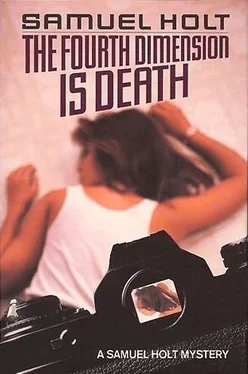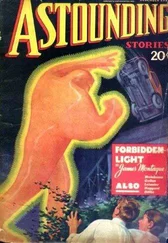I laughed and said, “By God, you are from Texas, aren’t you?”
“Gave it away, did I?” He made a drat finger-snapping gesture. “Somehow, I always slip up.”
“Dos Equis,” I told him, and he crossed the room to a kind of bas-relief kitchen — all the necessary appliances in a wide shallow closet. Opening the refrigerator, he said, “I’ve noticed you Easterners tend to like glasses.”
“Not necessarily.”
“Good. Less work for mother.”
He too had chosen Dos Equis. Handing me mine, he sat in the chair facing me — it was true, our knees did not quite touch — and raised his bottle in a toast: “Remember the Alamo.”
I raised mine: “Remember the Maine .”
He thought about that, decided it was acceptable, and said, “Carthage must be destroyed.”
“Fifty-four forty or fight,” I suggested.
“Drink before it gets warm,” he told me.
It was his house, so it was only right that he got to go last. We both drank from our bottles, and then he said, “So you write for Vanity Fair.”
“I’m not on staff,” I told him, “just a freelance. In fact, this’ll be my first piece for them.”
“And it’s about success in the arts?”
“Success and failure in the arts,” I corrected. “Really, about the interface between the two.” For this impersonation, this version of Ed Dante, I’d mussed up the wig a little and thought myself into a sub-Columbo guise; a careless cerebral guy, probably not first-rate at what he does, unaware of any negative impression he might be making with his moustache and his sloppiness. Success and failure, in other words; exemplifying my subject matter.
Lacroix said, “And you think Dale fits in there? The interface between success and failure?”
“Sure.” I gestured with the bottle. “You couldn’t call him a failure, he was making a living at his chosen profession. Not many do.”
His mouth curved in a rueful smile. “You can say that again.”
“But Wormley wasn’t really a success either,” I went on. “The highest he got was a parody of someone else’s success.”
“And that even got him killed,” Lacroix said, “which is about as big a failure as you can get.”
Bewildered, I said, “What do you mean?”
He seemed surprised by my surprise. “Well, Sam Holt killed him, didn’t he?”
Whoops. I had to tread carefully here. Was this the common public view of the situation, or was Lacroix’s opinion an odd one, a distortion caused by his having known Wormley? I said, “Did he? I didn’t think that had been established.”
“Oh, they’ll never get him for it,” Lacroix agreed, airily waving the Dos Equis bottle.
The old powerful-influence idea again. If only it were true. I said, “I’m not sure what the motive would be.”
“Well,” he said, the casual assurance of the uninvolved, “I don’t suppose he meant to do it, do you? There was some sort of funny history of violence between them, you know, and I guess it just got out of hand. You know,” he added, “you oughta talk to Holt, too, see what he thinks of success and failure.”
“I wrote him, as a matter of fact,” I said. “In California. Haven’t heard anything yet.”
“I bet you don’t.”
“Probably not,” I agreed. “I suppose, guilty or innocent, he’ll be keeping a low profile right now.” I brooded, partly real and partly for effect. “You know,” I said, “if Dale Wormley really was killed by Sam Holt, because he was mad at the imitation, that could screw up my whole article. I mean, the magazine might not want to touch it that way, I might have to start all over with a completely different approach.”
“You mean, forget Dale.”
“Yeah, I’m afraid so.”
“And me,” Lacroix said, with another crooked grin. “Story of my life, I’m afraid.” He drank some beer.
I said, “Well, let’s think about it. It’s only the celebrity thing that’s a real problem. You knew Wormley. If Sam Holt didn’t kill him, who else might have?” And I was astonished at how easily it had been possible to come around to ask that question directly.
I was also disappointed by Lacroix’s prompt answer: “Nobody. Or, that is, anybody who knew him might have, but that still comes out, really, to nobody. I mean, Dale was an irritation, a very irritating guy — don’t tell Julie I said that; you know, she had a different attitude toward him — but he wasn’t irritating enough to kill.”
“In what way irritating?”
“Career,” Lacroix said. “Anything at all about acting. He’d walk all over you without thinking twice. Even in class, in an exercise, he’d try to upstage you, steal the scene. People were always yelling at him to cut it out, lighten up, don’t be such an asshole.”
“Too competitive, you mean.”
“Cutthroat,” he said. “Myself, I like competition, I think it’s a good thing, but you can overdo it.”
“Sounds as though a lot of people would hold grudges against somebody like that,” I said.
“Well, sure, anybody might have,” Lacroix agreed, “if he was more successful at it. But he tried so damn hard, he screwed up most of the time. If you’ve got a guy trying to stick his thumb in your eye, but every time he makes a move he steps on his own dick instead, you can’t get really mad at him.”
I had no choice but to laugh at the image he’d conjured up, and he laughed along with me. “Still,” I said, “in fact, there are people in this world without a terrific sense of humor.”
“That’s true,” he conceded. “Down home, we say, ‘ Forget the Alamo, it’s over , man,’ but some people just have to be mad all the time, it’s the only way they can keep their heartbeat regular.”
“Like Dale Wormley, for instance.”
“A perfect example,” he agreed, and then he looked surprised and said, “You know, though, there is another.”
“Another what?”
“Another tough case, like Dale,” he told me. “Now, those two made a pair. But I just can’t see Matty taking it as far as all that.”
“Matty?”
“Matty Pierce.” Lacroix nodded, looking thoughtful. “He’s been in our class, part of the group, longer than me. Longer than Dale, even.”
Matty Pierce. The name rang a bell. It seemed to me Julie had said something about a Matty Pierce; not in Florida, but earlier than that, maybe in Mort’s office. I said, “Tell me about this Matty Pierce.”
“Well, one thing weird about him,” Lacroix said, “oddball, I mean, is that he’s a real New Yorker. The rest of us are all from to hell and gone, but Matty comes from Brooklyn.”
“Oh?”
“He’s kind of a tough guy,” Lacroix said, “or at least he likes to play tough guy. He grew up in some tough neighborhood out there. In fact, he still lives out there, takes the subway in.”
“I’m living in Brooklyn myself right now,” I said. “In Midwood.”
“Is there a section called Canarsie?”
“Yes. Way out by Jamaica Bay.”
“Well, that’s where Matty grew up,” Lacroix told me. “And where he still lives. The story is, they made some TV movie out there a few years ago. You know, they shot some exteriors there, used some of the neighborhood kids.”
I almost said, That’s how I got started , which was the truth for Sam Holt but not for this journalist form of Ed Dante; so I stopped myself in time. But, in fact, I’d gotten into this career because a movie was being shot in Mineola, Long Island, where I worked as a cop on the town force. The movie people used a few of us cops as extras — to get on our good side, essentially, justify paying us some money that couldn’t be called a bribe — and someone like the way I looked in the dailies; and the rest is pop history.
Читать дальше












